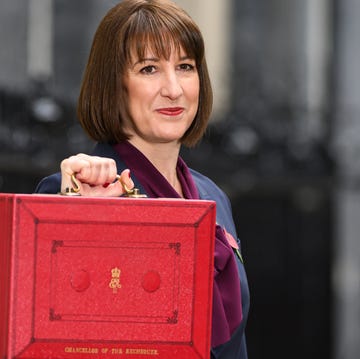If you have gaps in your National Insurance record, you could be on track for a smaller State Pension than you think. The deadline to plug the gaps between 2006-2018 closes this April. Time to find out if you could boost your State Pension!
What’s all the fuss about?
There's a push to get everyone over 40 to check their National Insurance (NI) record to make sure they're on track to receive the maximum State Pension and find out whether buying voluntary National Insurance (NI) years to plug any gaps is a good idea.
Why the rush?
When the 'new' State Pension was introduced in 2016, the government put a transitional arrangement in place to allow people to plug gaps in their National Insurance record between 2006 and 2018. The deadline to do so is finally closing on 5 April 2025. After this, you will only be able to buy National Insurance credits to make up for the gaps within the last six years.
What to read next
You might think April’s a long way off but HMRC has now warned that the online tool it launched earlier this year to streamline the process may not be available to some (for instance, if you want to fill in NI gaps during self-employment). So don't leave it until the last minute rush to find out how to get sorted!
It could be you...
Heather Suttie, 50, a Glasgow-based, self-employed PR professional and podcaster, has worked for almost 35 years but was short of three years' worth of National Insurance contributions having spent two extra years studying in her mid 20s and a year living in Tanzania when she was 38.
“I realised I could pay to fill the gaps in my record going back to 2006 thanks to Martin Lewis, and that the extended deadline closes in April. So, I bought the three years at a cost of around £2,500 total for a mixture of self-employed and employer contributions.
"Now my full state pension is currently estimated to be worth £203.85 a week which is the maximum state pension I can get. It only took around 30 minutes to check for NI gaps, work out if it was worth plugging them and sort it. It’s so worth it and I’m glad I was able to tackle this at this time and would encourage others to do so. If nothing else, it’s peace of mind,” says Heather.
Tom Francis, head of advice at Octopus Money, says: “As Heather has done, purchasing extra NI years can be a great way to achieve a guaranteed boost in income every year after you retire, for a fixed amount of money today."
How does this affect me?
If you are a woman born after 5 April 1953 or a man born after 5 April 1951, potentially you could benefit from this 'one time only' opportunity to fill NI gaps from earlier in your career (2006-2018 specifically). Anyone born earlier is on the old State Pension system, so this doesn't apply. Basically, everyone over 40 should check.
What do I need to do?
Go to gov.uk /check-state-pension or use the HMRC app. Here you can check how much State Pension you are on track to get if you work up to your state pension age. You will need your government gateway user ID to log into the system.
To get the maximum State Pension you’re entitled to when you reach your State Pension age, you'll need 35 years of National Insurance contributions. At the start of a career, that sounds perfectly achievable but in reality there could be plenty of reasons for gaps in your NI record. For instance, you may have spent time living or working abroad, have been employed but on low earnings, have been self-employed but not paying contributions, or you may have taken time out of the workplace to have a child and then returned part-time so you could support your growing family followed by your ageing parents.
I have gaps! Now what?
If your state pension forecast isn’t for the full amount (currently £221.20 a week), and you have gaps in your NI record, you may be able to top up and boost the amount of State Pension you get.
Buying an extra year’s worth of NI contributions this way will cost you £842.20. According to calculations by Moneysavingexpert (MSE), many people could spend £824 or less and get £5,500 back in pension payout.“Boosting your state pension by back-claiming or buying missing National Insurance years is one of the single most lucrative things you can do. Many people have been in touch to say they're likely to gain £10,000s from it,” says Martin Lewis, MSE founder.
So I should buy extra years, right?
Not everyone will benefit from buying extra NI years so don't just rush into it. For instance, if you’re not at State Pension age yet, instead of making voluntary contributions, you might be able to top up your record by simply working slightly longer or receiving National Insurance credits (for instance, if you are on maternity leave or a carer). Or it might be that a higher State Pension would mean you pay more tax.
This feels complicated, who can I speak to?
If you're not yet at State Pension age, you can call the Future Pension Centre on 0800 731 0175 to find out if you have gaps that are worth plugging. For anyone already at State Pension age, there’s the Pension Service on 0800 731 0469.
But you need to look at your future finances in the round, too. Tom Francis, head of advice at Octopus Money, says: “Provided that you have a sufficient rainy day or emergency fund ready to dip into if you need to, your future self may thank you for paying now to lock this cash into your State Pension.
"Remember to think about your own situation, as everyone will be slightly different. The extra state pension is taxed, so if you’re a basic or higher-rate taxpayer, it can take a few years to get back what you’ve put in after retiring. Another option is to pay into a private pension, which is eligible for at least a 25% boost from the government in tax relief. It’s always a good idea to explore all your options for making the most of the money you have," he says.
You can call MoneyHelper free on 0800 011 3797 for advice or use the MSE step-by-step guide to State Pension boosting which includes a State Pension top up ready reckoner.
How do I pay voluntary NI contributions?
If you’ve worked out that it makes sense to top up, you can pay in two ways:
*online by logging into the service via gov.uk/check-state-pension or the HMRC app.
Not everyone will be able to use the online tool – for instance, if you've been self-employed for any of the years you're trying to pay for, or you've lived abroad for any of the years you're trying to pay for. In which case you'll need to do this:
*by phone (for this you’ll need to contact HMRC to get an 18 digit reference number).














